Take 5: Highlighting the apprenticeship “breaks” of cheese industry pros
In this ongoing series, culture profiles folks in the cheese industry expanding their expertise and gaining diverse experience beyond their time behind the counter or at a vat.
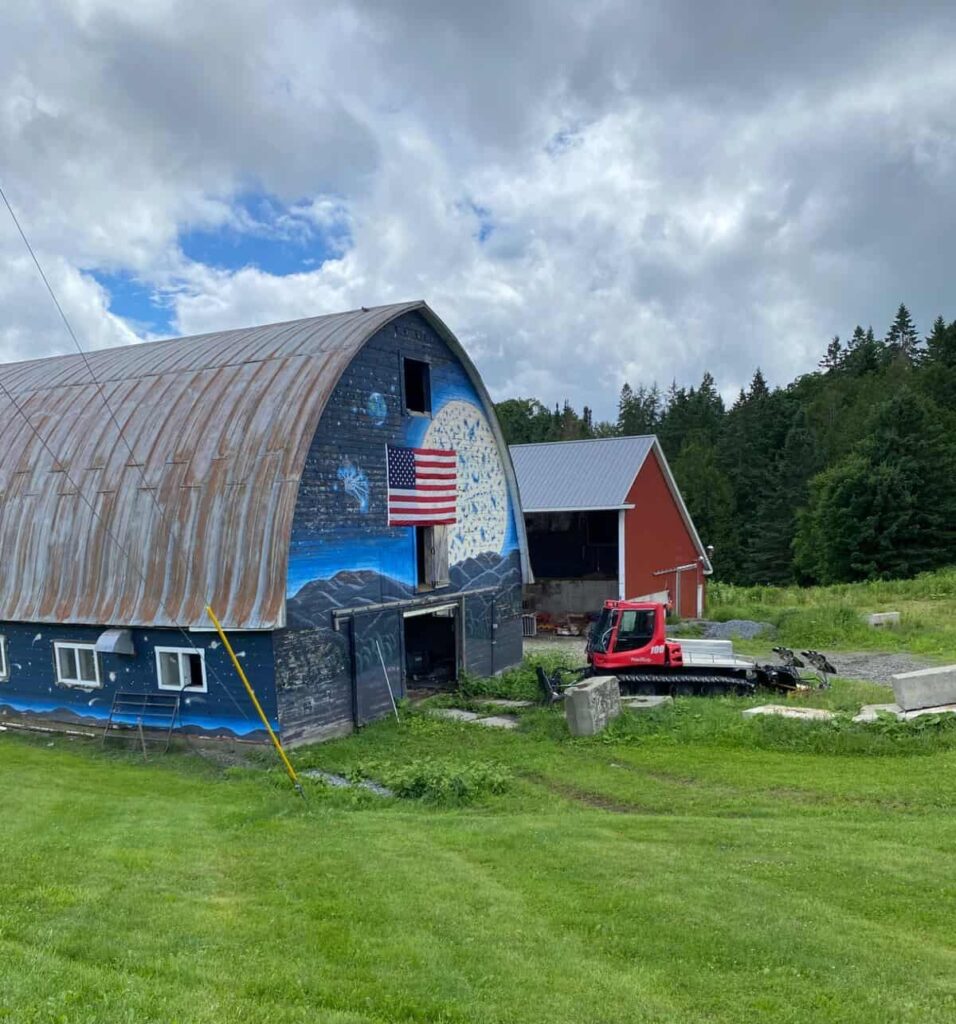
While most teenagers are busy perfecting their summer tans, 16-year-old Marly Berlin opted for a much cooler adventure in the cheese cellars of Jasper Hill Farm. Over the course of two weeks, she immersed herself in the life cycle of cheese, partaking in everything from coagulating milk to washing wheels and tasting batches. Berlin’s experience revealed not only the labor and dedication behind every wheel of cheese but also the camaraderie that unites the team. We caught up with Berlin to hear how her summer went and find out how this experience impacted her future career goals.
Culture Media (CM): Not many young people are aware that cheese is a career path—most of us in the industry found our way here at a later point in life. How did you get into cheese in the first place and why you find it interesting?
Marly Berlin (MB): Growing up in New York City, I have been surrounded by cheese since a young age. I can remember begging my parents to let me stop by Murray’s on the walk home from school, the giant class counter with what seemed like hundreds of cheeses behind it was better than any candy store. Over time, I grew close with the cheesemongers as they encouraged me to try different cheeses and taught me all about them.
Cheese can be found all over the world, nearly everywhere milking animals have been domesticated. From Cheddar in England to Gorgonzola in Italy and Monterey Jack in America, the sheer variety of cheese fascinated me. I began to keep a cheese journal to document my cheese experience, diligently taking note of each new cheese I tried. Beyond that, the cultural importance of cheese has always interested me. This seemingly simple food has played an immense role in human culture and survival. In Ancient Greece it was used as a currency and ever since Medieval times it has been a food to gather over, a tradition which persists today.
When I moved to California at age nine, I began visiting new cheese shops in search of mongers who had the same passion for cheese as the ones I’d come to know at Murray’s. This quest led me to Small Goods, a small-batch American-made cheese shop where I currently work. This job has given me a glimpse into what goes on behind the counter. From the effort that goes into sourcing cheese to the importance of educating consumers and making cheese accessible, this experience has not only strengthened my passion for cheese, but also taught me the joy of introducing others to new cheeses. The opportunity to take the place of the mongers who introduced me to cheese in the first place has been special.
CM: What made you want to spend your summer making cheese?
MB: I wanted to explore what lies behind the magic of cheese and understand the process of how it’s made from start to finish. Up until now, my only experience with cheese was selling it and, of course, eating it. We sell a lot of Jasper Hill cheese at Small Goods, but before my internship, I never would have expected cheesemaking to be such a complicated and laborious process. This experience gave me exactly what I wanted, a glimpse into the “story” behind cheese.
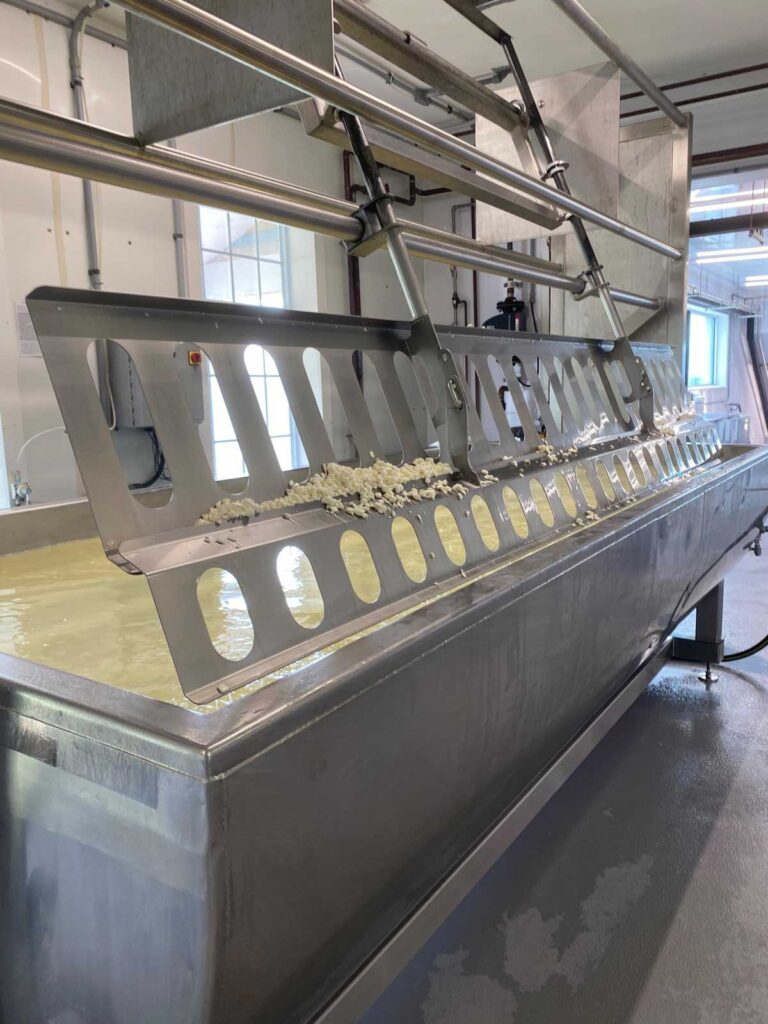
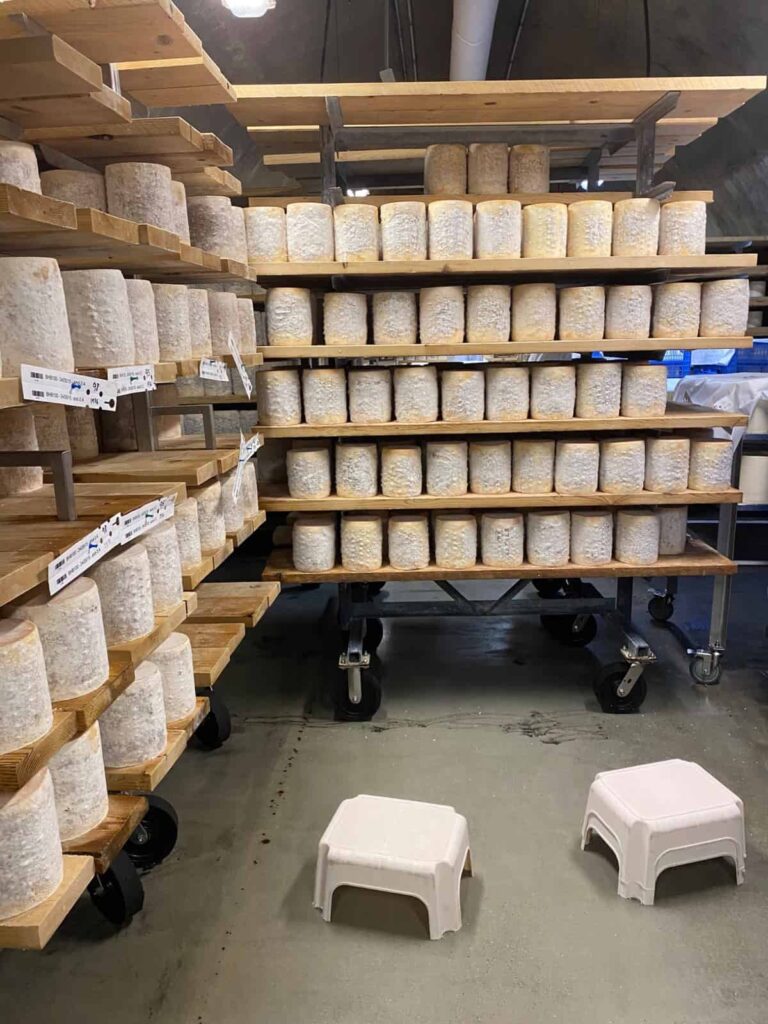
CM: How did you hear about the Jasper Hill internship?
MB: I first heard about the Jasper Hill internship from Jenny, my boss at Small Goods. Before she told me about her experience interning at a variety of different cheese farms, it hadn’t even occurred to me that this was a possibility. This led me down an internet rabbit hole and ultimately to Jasper Hill.
CM: What aspects of cheesemaking/affinage were you able to participate in during your time at Jasper Hill?
MB: I got a great overview of cheesemaking and affinage at Jasper Hill. I began in the cellars where I washed, flipped, wrapped, and rated cheese. This first week was eye-opening and showed me that affinage is a laborious process. All of the affineurs were so friendly and happy to walk me through the tasks—of which there were many.
After working in the cellars, I moved up to the creamery where I got to partake in the entire cheesemaking process from start to finish. From adding the rennet to milk to flipping the cheese for a final time before it went to the caves, the cheese needed to be cared for constantly in its first day of existence—the Bayley Hazen alone had to be flipped nine times. This experience revealed to me the effort and dedication that goes into all of the cheese that ends up on our grocery shelves.
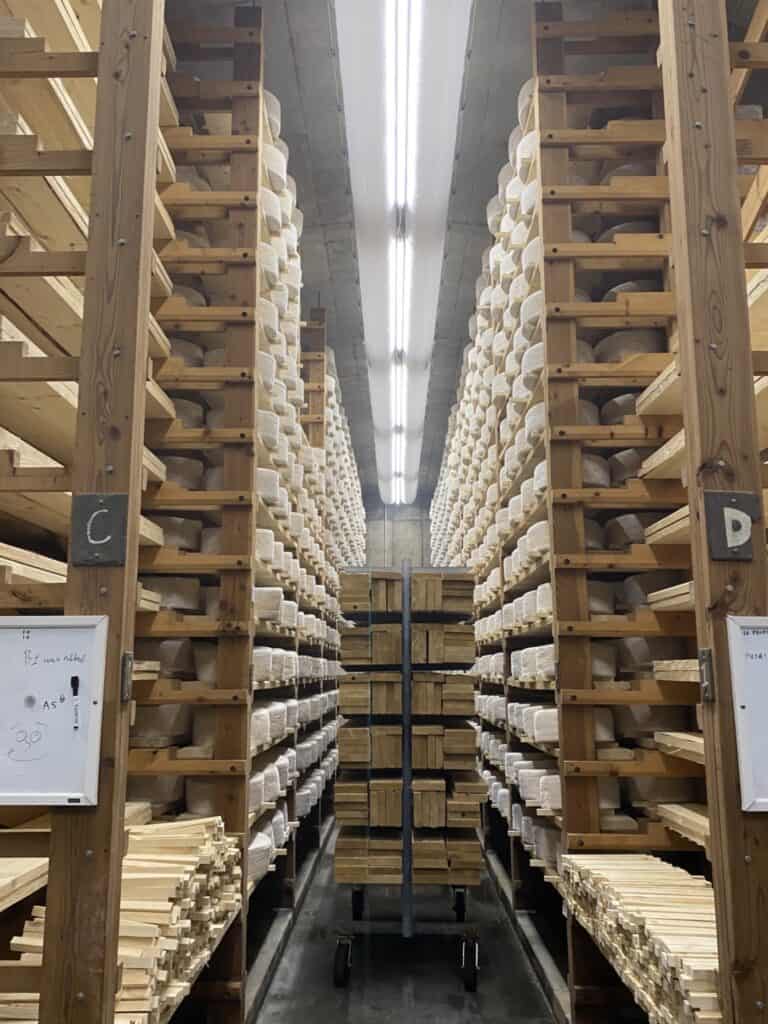
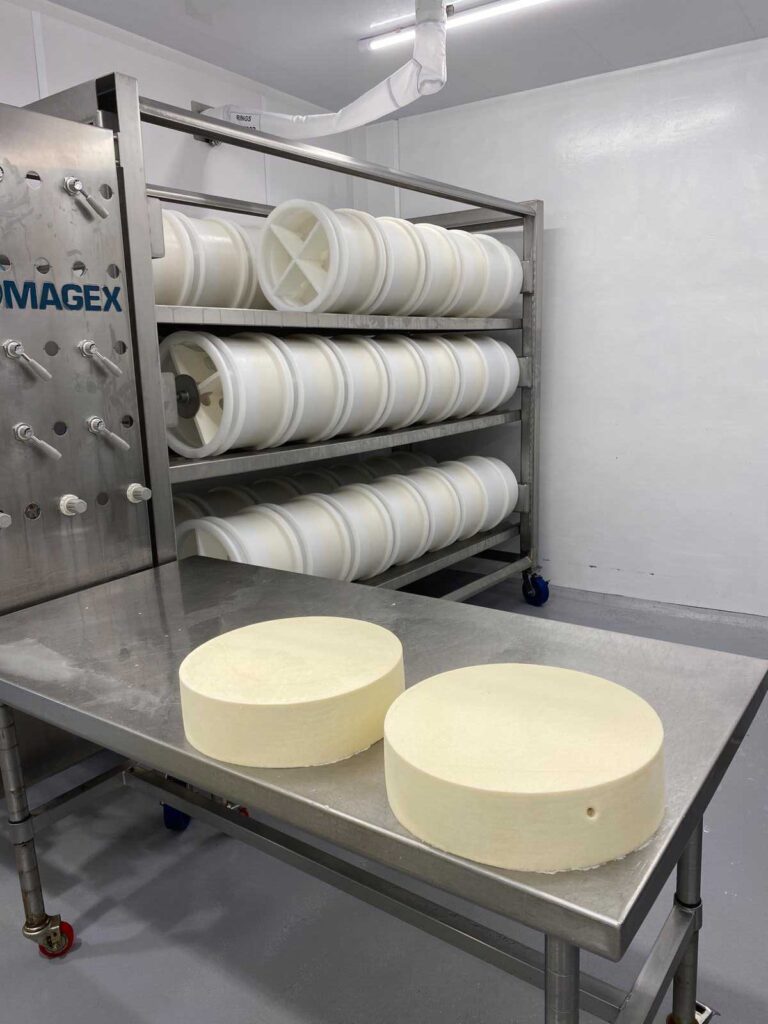
CM: How did the experience compare to your expectations?
MB: The most surprising aspect was the amount of focus and care that goes into cleaning the facilities and keeping them in pristine condition. This completely defied my expectations of what the cheesemaking process would be like. But, as many affineurs would go on to tell me, cheesemaking is 10% cheese-focused and 90% cleaning. By the end of my time there, I lived by the mantra: Soap. Rinse. Sanitize.
I was also pleasantly surprised by how much fun everyone had doing their job. Little things like the music the cheesemakers played while working made it really fun. If you find yourself at Jasper Hill’s creamery or cellars, expect to hear a different genre of music in each room you enter. And, if you’re lucky enough, you might catch the affineurs break into one of their infamous spontaneous sing-alongs when a real banger comes on the speakers. Moments like these shattered my expectations of affineurs quietly and seriously laboring in the dark to make delicious cheese.
CM: What was an unexpected challenge you faced during the internship?
MB: I did not know how physically taxing the cheesemaking would be, you are essentially completing a full body workout each day. Flipping cheese repeatedly began to feel like deadlifting, while washing cheese quickly turned into reps of squats, and pushing curds into their molds felt like a bent-over row. Add in the fact that the creamery is often around 90 degrees and you are essentially working out in a sauna it can feel unbearable at times. I soon realized that cheesemaking isn’t for the faint of heart or, in this case, the faint of strength.
CM: How has this experience impacted your future career goals? Do you see yourself becoming a cheesemaker?
MB: I’m still sixteen and I haven’t yet figured out what I want to do with my life, but it would be amazing if it involved cheese in some way. Whatever happens, this experience has given me a tremendous amount of respect and appreciation for the skill and effort that goes into making world class cheese.



